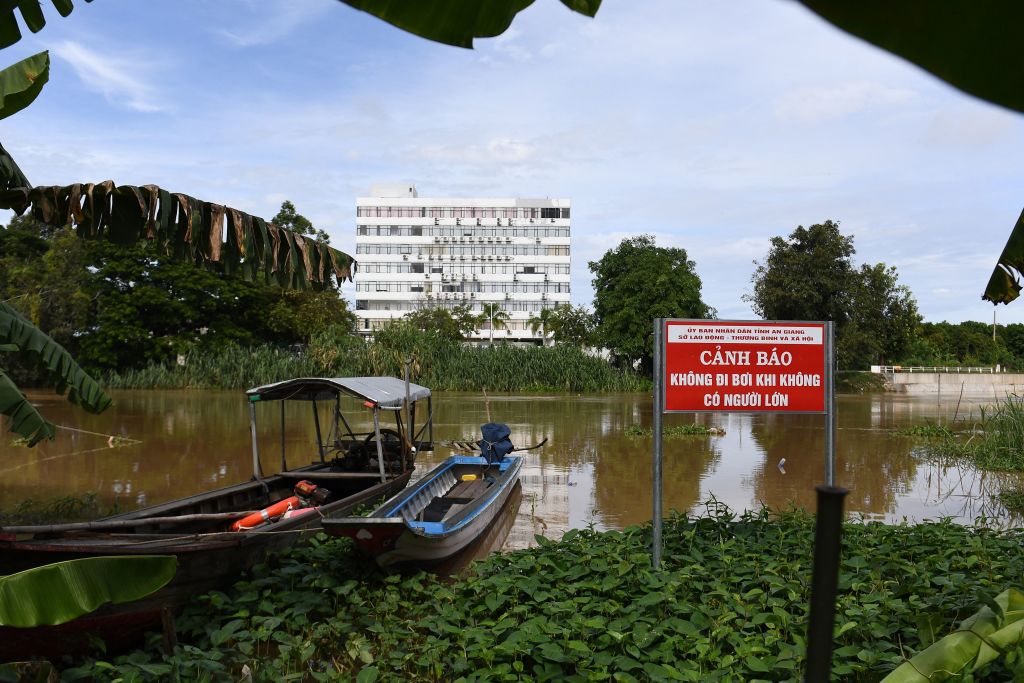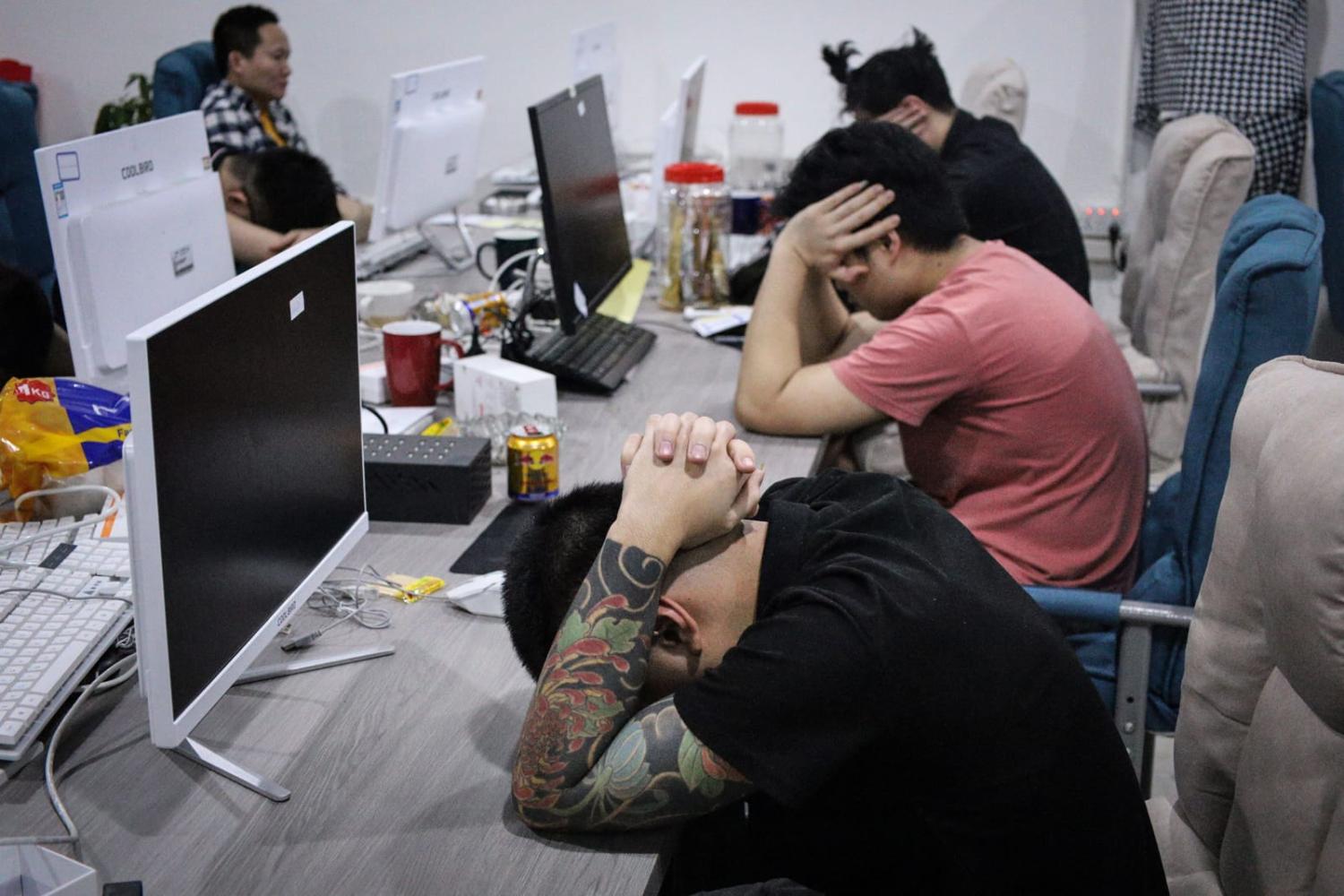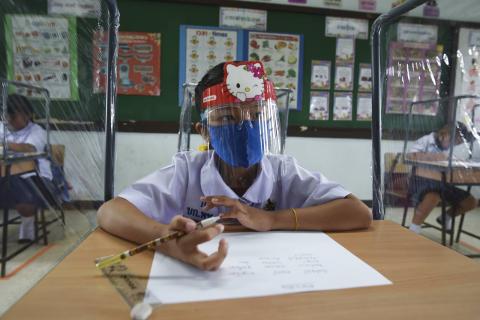The job ads always sound too good to be true. Open and well-paid positions at a popular casino. Lodgings, benefits and other perks provided.
But it all ends up quite the opposite. Victims are being caught in trafficking rackets to the Mekong region in Southeast Asia, lured to jobs in “call centres” where workers are forced to run online scams for money. It means victims are two-fold – those targeted by the scams, and those forced to carry them out. The first type of victim is familiar, but the second rarely so.
“These concerns occur in the context of wide-ranging digital criminal activity such as romance-investment scams, crypto fraud, money laundering and illegal gambling,” warned a report in August released by the Office of the UN High Commissioner for Human Rights. “The situation remains fluid,” the report continued, given “hundreds of thousands of people from across the region and beyond have been forcibly engaged in online criminality … People who are forced to take part in online scams are most often trafficked persons and migrants in vulnerable situations”.
The accounts of those forced to run the scams are often similar. Those rescued or managing to escape report inhumane working conditions in compounds that are usually based out of casinos or buildings in the Special Economic Zones that have sprung up in Myanmar, Laos and Cambodia to attract foreign investment, but also other enclaves in the area that border China in the north.
Long shifts are spent in barbed-wire enclosed compounds heavily guarded by men with batons. Mobile phones and passports are confiscated so workers cannot get help – in some instances, people are literally “chained to their desk”. Those who refuse to work, face heavy beatings and other torture. Debt bondage is used as ransom and increases when workers are sold to another operation.
Thailand is considered a transit hub for these operations to move victims to compounds or from one scam operation to another, according to the UN report. “States within the region are trying to identify actions and policies to address this phenomenon,” it said, “while criminal actors are reacting by finding ways to change and relocate their operations, building new centres across the region and upgrading existing compounds”.
Several scam operations have been shut down by authorities since 2016 only to spring up in new locations. The UN report said between 2014 and 2019, the number of casinos in Cambodia increased from 57 to 150.
A separate analysis released last month by the UN Office on Drugs and Crime estimated that “the scam industry is earning criminal groups the equivalent of billions of US dollars, with profits rivalling the GDP of some countries in the region”. The report claimed “a conservative estimate” in one unnamed Southeast Asian country for scammers ranged between US$7.5 and US$12.5 billion – “almost half this country’s GDP in 2021”.
Several cities in mainland Southeast Asia were identified last year by the Thai government in a warning about hotspots for scam operations. They include several cities in Myanmar’s eastern Shan State, which borders China to the north, Cambodia’s Poi Pet, Sihanoukville and Svay Rieng, as well as sites elsewhere, including in the Philippines. US sanctions against individuals running operations in Laos warn of “drug trafficking, human trafficking, money laundering, bribery, and wildlife trafficking”.
Some victims have managed daring escapes. In September last year, a group of 60 Vietnamese fled from a casino in Bavet city, in Cambodia’s Svay Rieng province. This followed just weeks after a group of 40 Vietnamese broke out of a Chinese-managed casino in Cambodia’s Kandal province and swam across the river to Vietnam’s An Giang province. Some were reportedly swept away by the waters.
Rescue attempts have become frequent. Reports indicated that Thailand was planning to rescue as many as 3,000 Thais believed to be held in Cambodia.

However, gangs also traffic people from outside of Southeast Asia as operations expand. Last November, 11 Indian nationals were rescued from the Golden Triangle. Lao authorities were acting on a tip from the Indian embassy after victims were lured to work as IT specialists in Dubai, Singapore and Thailand, with offers of well-paying jobs and pre-arranged flights, visas and passports. The UNDOC report stated “international NGOs have identified over 40 nationalities of trafficking victims in scam compounds in Southeast Asia … targeted because of their language skills (English, Mandarin) as well as their familiarity with social media, and cryptocurrency”.
Following the 2021 coup in Myanmar, the influence of local warlords in the region appears to have expanded, with little sway held by the central authority to deal with crime. Often, the pro-junta forces are perpetrators.
Shwe Kokko, which means “Chinatown” in the local dialect, is a new town in Myawaddy in southeast Myanmar’s Kayin (Karen) state near the Thai border. It is currently under the control of the Karen Border Guard Force, allied to Myanmar's army, the Tatmadaw. While in Kokang Special Administrative Zone, controlled by the Tatmadaw-allied Border Guard Forces (BGF), bordering China’s Yunnan province, transboundary crimes are backed by a local casino boss, according to a report by the US Institute of Peace.
Regional crackdown efforts have intensified. In June, Thailand’s Electricity Authority cut power to a Shwe Kokko casino at the request of Myanmar after a gambling tycoon was arrested in Bangkok. And a large group of Chinese nationals allegedly involved in cybercrime were recently repatriated.
But these are piecemeal steps. There is no clear regional strategy to root out scam operations from Southeast Asia.

